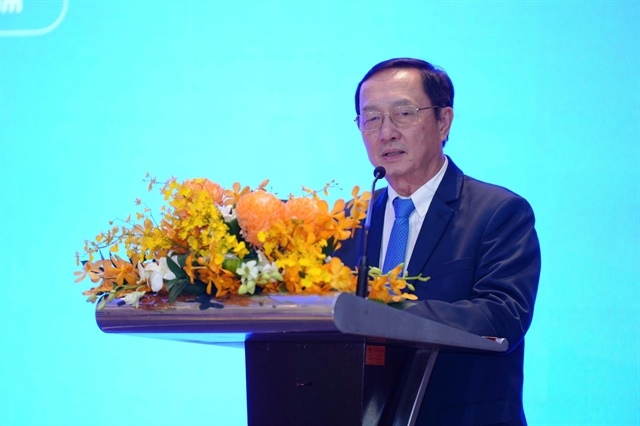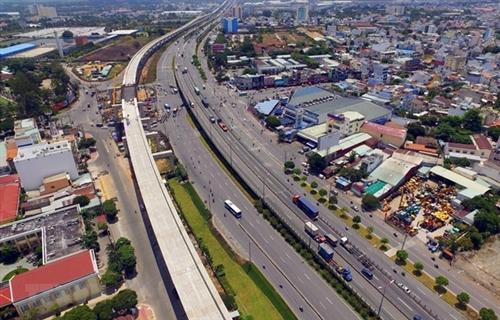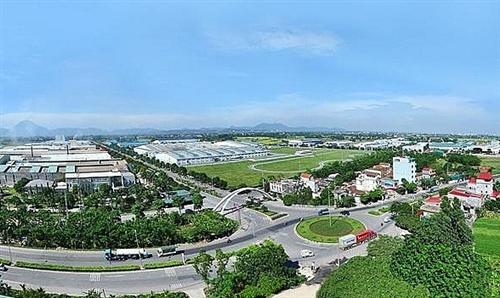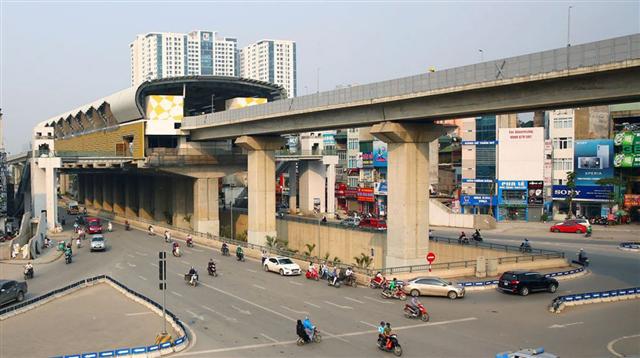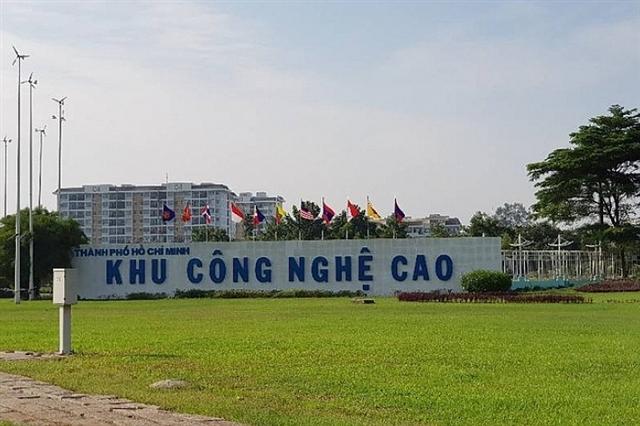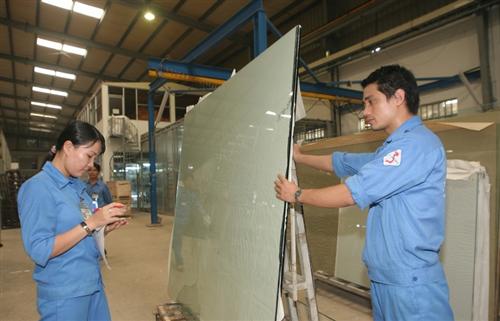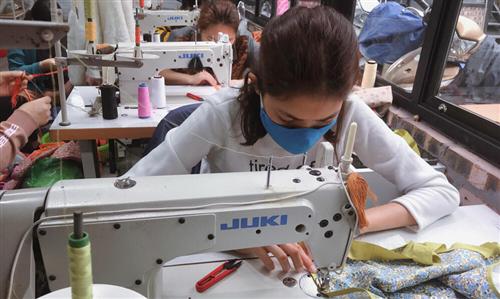Adapting to new economic travails
Adapting to new economic travails
The Vietnamese government has enacted Directive No.11 on supporting enterprises out of difficulties caused by COVID-19. Raymond Mallon, senior economic advisor from the Australia-Vietnam economic reform programme, writes about the economic outlook for 2020 under the shadow of the outbreak, and opportunities for business through new government policies.

Raymond Mallon, senior economic advisor from the Australia-Vietnam economic reform programme
|
It is still too early to reliably assess the full economic impacts of the COVID-19 outbreak. The most visible global economic impacts include slumps on global equity markets, global downturns in travel and tourism, disruptions to global supply chains, and factory closures. This is adversely impacting on households whose livelihoods are linked to such economic activities. More generally, the pandemic is impacting on investor and consumer confidence and this is depressing investment, demand, and sales.
As recognised in Directive 11, Vietnam is not immune from such impacts. Indeed, the country’s high level of economic integration with global economic markets could leave it especially vulnerable to the impact of a global economic slowdown. The expected slowdown in economic growth and travel will restrict opportunities for Vietnam to expand its access to global trade and tourism markets. On the other hand, government policies have so far been comparatively effective in containing the COVID-19 spread, and this has helped limit the most immediate economic costs of healthcare and loss of productivity.
Directive 11 recognises that the pandemic is likely to continue to continue impacting on all sectors. It is impacting on tourism and hospitality sectors as people reduce travel and entertaining in order to minimise the spread of the virus. Education and health service providers face particular risks of contagion and are having to reorganise the way they provide services in order to reduce the risk of contagion.
Retail sales are suffering as consumers try to reduce spending because of ongoing uncertainty. The availability of credit has declined, and equity markets have been negatively impacted. Declining consumer confidence means that sales of discretionary items are likely to slow further.
Some manufacturing firms have struggled to import essential inputs for their production, while others face difficulties in accessing markets. Some farmers and agriculture traders and processors have been affected by controls, especially at the Chinese border, that have limited opportunities to export agriculture products.
The worst affected businesses may have to reduce or stop activities. Many workers may not be able to work and earn money, and more workers are likely to lose their jobs.
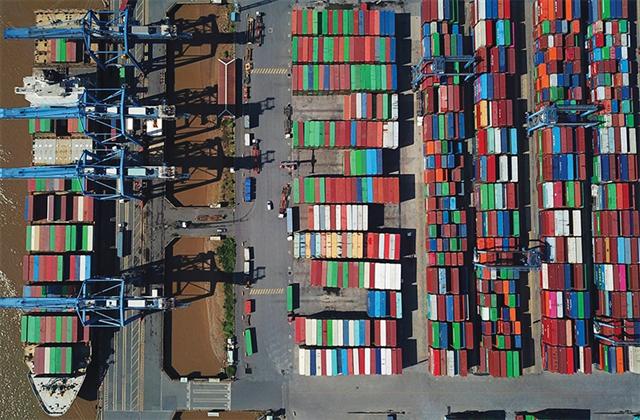
The global health emergency is impacting all areas of life, from logistics and retail to education and cross-border trade, Photo Le Toan
|
Potential bright spots
Despite the overall negative impact of COVID-19 on the Vietnamese and global economies, there are reasons to remain relatively positive about Vietnamese medium-term economic prospects, once the pandemic begins to stabilise. First, the policy responses to date have, so far, helped contain the spread and limit its immediate economic impacts. Secondly, Vietnam’s overall economic performance remains relatively impressive in terms of macroeconomic stability, despite some signs of a slowing economy. Third, under Directive 11 and other initiatives the government has renewed its commitment to further reduce bureaucratic obstacles faced by business in investing and competing fairly in the market place. State-owned enterprises and other businesses will be under increased pressure to restructure to adapt to the economic challenges. Fourth, many businesses will attempt to minimise future risks by reducing their dependence on single large markets for sourcing inputs for global production chains. One strategy will be to further diversify sources of production inputs and final products. More foreign investors may consider moving production bases to Vietnam and elsewhere in Asia, and to build stronger production links with increased numbers of domestic firms. Finally, firms may look to invest more in IT, robotics, fintech and other new technologies to facilitate new models of business activity (including e-commerce and on-line education, health and entertainment services) that have the potential to reduce the spread of viruses. Vietnamese firms are demonstrating an increasingly strong competitive advantage in innovating in such areas.
Policy responses
Policymakers are in unchartered waters. There is no ready-made model to deal with the COVID-19 challenge. National leaders face the dual challenge of continuing to contain the virus, while also engaging with businesses, workers, and other stakeholders to sustain investment and employment growth and reduce the potential for contagion in workplaces.
Sustaining employment and incomes is important because the social and personal costs of reduced employment and income earning opportunities can be high and will exacerbate the direct human costs of infections. A strong domestic economy is also needed to help finance the costs of heath prevention and mitigation measures.
More specific economic responses that could be taken include support to facilitate innovation to reduce risks of contagion in economic activities; accelerated efforts to improve the business environment to encourage sustained employment and income growth; and targeted efforts to stimulate economic growth.
The government may need to consider providing fiscal stimulus prioritising actions to reduce bottlenecks to efficient public investment and expenditure, while also removing remaining obstacles to private sector access to finance and capital markets. Confidence will also be important in sustaining consumer demand and business investment.
Directive 11 represents a promising start towards action on the above policy responses. A frequent challenge in Vietnam is getting line agencies to take concrete action to implement government directives. Regular meetings with business and labour representatives could help to identify emerging concerns and to hold line agencies accountable for implementing reforms in the national interest.
To conclude, while Vietnam appears to have been remarkably successful in containing the outbreak, it is having a significant negative impact on global and Vietnamese economic growth prospects, with the full extent of the negative impacts unknown.
The challenge for the government is to continue developing and implementing policies that contain the speed at which the virus spreads while also minimising the social and economic costs resulting from the expected global economic slowdown and/or potential recession. It is important to monitor, learn and adapt policy responses as new information becomes available.
With new policies such as Directive 11 being introduced to help stimulate business investment and employment, Vietnam may well emerge from the pandemic in a relatively better economic situation than in other countries where governments have been slower to act.



